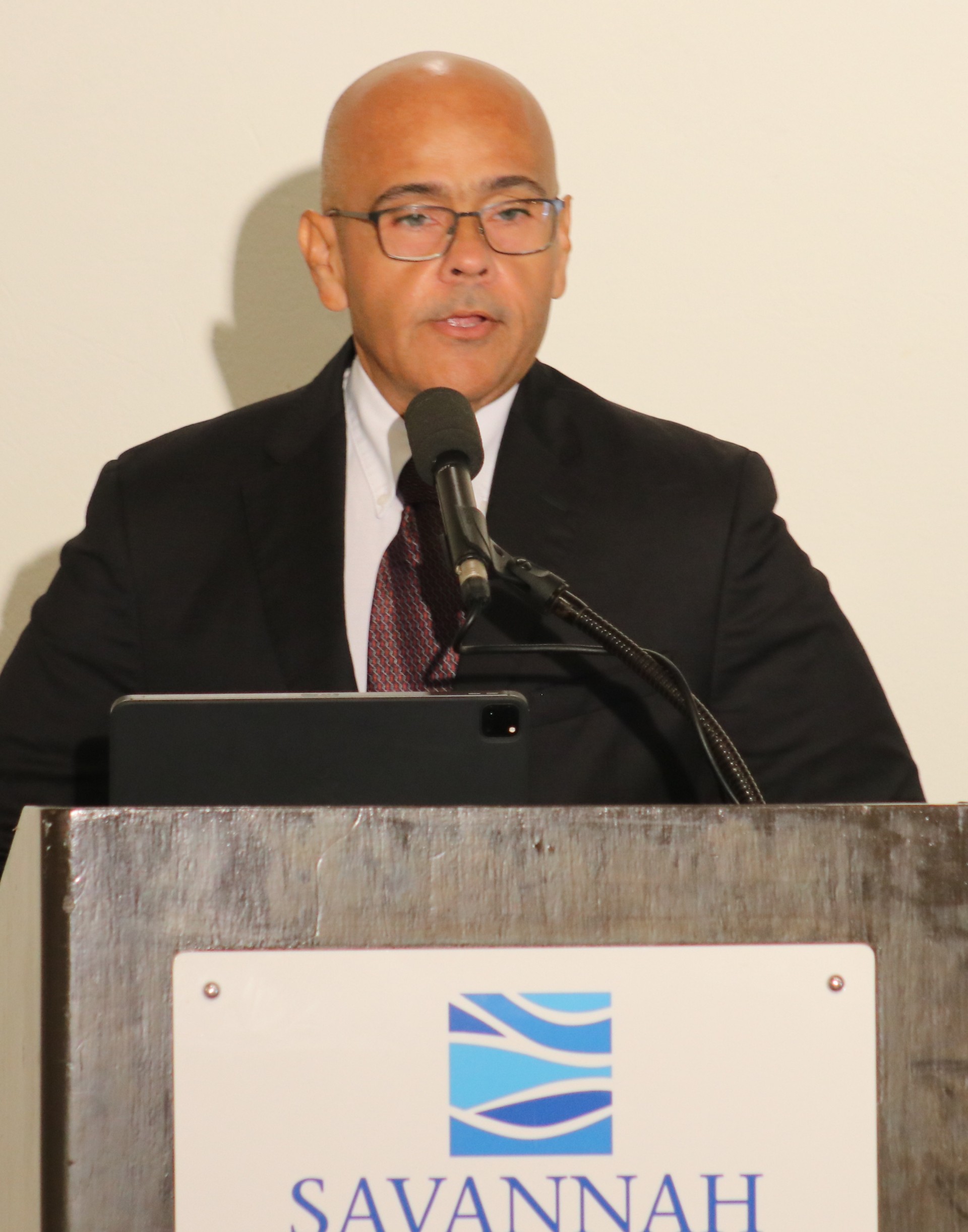Barbados Workshop Integrates Climate Services into Environmental Impact Assessment Processes

October 16, 2024
Workshop in Barbados integrates climate services into Environmental Impact Assessment processes to enhance climate resilience. Experts explore using climate data in development planning and policy for project integration.
A first-of-its-kind workshop aimed at integrating climate services into Barbados’ Environmental Impact Assessment (EIA) processes was launched on Tuesday at the Savannah Beach Club, Christ Church.
The two-day event, hosted by the University of the West Indies’ Centre for Resource Management and Environmental Studies (CERMES), in collaboration with Joseph R. Biden Jr. School of Public Policy & Administration at the University of Delaware, aims to strengthen the nation’s climate resilience by exploring how climate data can be better used in development planning.
The workshop, titled Strengthening Climate Resilience: Integrating Climate Services into Environmental Impact Assessment Processes, brought together environmental experts, meteorologists, and private sector representatives to discuss how climate services could be incorporated into project development and policy.
Sharing an overview of the project, principal investigator and Professor of Energy and Environmental Policy at the Biden School, Professor Kalim Shah, said: “This is a NOAA [National Oceanic and Atmospheric Administration] and the US Department of State-funded research project, and we are reviewing and understanding the climate services and products available in several Caribbean countries.”
He shared that the workshop has two main objectives.
“One is to better understand how we can develop or co-design climate services and products that are useful to project developers in the development processes here in Barbados. The second objective is… how we can integrate these climate services and products… into the environmental and social impact assessment processes,” Shah said.
Barbados is the first country to host such a workshop, and Shah noted that the island has a relatively advanced regulatory framework compared to other Caribbean nations.
“What we’re trying to do here is figure out how we can integrate technical scientific regimes into a well-established regulatory legal process… for our overall sustainable development goals,” he added.
Minister of Planning and Development and Senior Minister in the Prime Minister’s Office with responsibility for coordinating infrastructural projects, William Duguid stressed the critical need for climate resilience, particularly for small island developing states.
“Our very existence and survival rests on climate resiliency,” Duguid said, noting the vulnerability of the country’s key infrastructure such as its airport, seaport, hospitals, and tourism hubs located along the coastline, which is at high risk of climate-related threats such as sea-level rise and storm surges.
Duguid also pointed to the importance of EIAs in ensuring that new developments do not worsen the island’s environmental vulnerabilities.
“A significant portion of this space will be impacted by coastal inundation by a 1 in 100-year or even a 1 in 50-year event,” he said, stressing that the EIA process in Barbados helps to mitigate these risks by making it mandatory for certain developments.
The minister told the audience that as climate-related disasters grow in frequency and intensity, the use of climate data in EIAs is essential to safeguard Barbados’ sustainable development goals. (SM)


